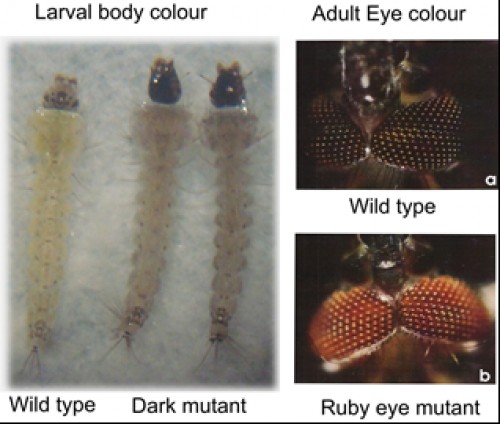Linkage Studies between dark body and ruby eye loci in Anopheles stephensi, an urban malaria vector in India
Author(s): T. P. N. Hariprasad, N. J. Shetty
Abstract: Anopheles stephensi is an important urban malarial vector in the Indian sub-continent which accounts for about 15% of the annual malaria incidence. Chemical control is most effective and immediate in controlling the vectors, but they cause major long term problems such as environmental pollution and resistance. Genetic control is the alternative method of controlling the vectors. In order to develop such a method, it is mandatory that the genetic makeup of the vector species should be established. Linkage study is one such aspect of characterizing the genetic makeup of a vector. Two morphological mutants, dark body (da) and ruby eye (ru) in An. stephensi were isolated and established. These genes were found to be recessive, monofactorial and autosomal. Linkage studies between the two mutants were carried out. Mendelian crosses were made and the results showed that the genes da and ru are non-linked and could belong to two separate linkage groups. Such studies will aid in the construction of the linkage map and the mutants can be used in basic and applied research.
 Fig.:
Fig.: Larval dark body colour and adult ruby eye colour mutants of
Anopheles stephensi. (Mutants shown alongside wild type for comparison)
How to cite this article:
T. P. N. Hariprasad, N. J. Shetty. Linkage Studies between dark body and ruby eye loci in Anopheles stephensi, an urban malaria vector in India. Int J Mosq Res 2015;2(2):24-27.



